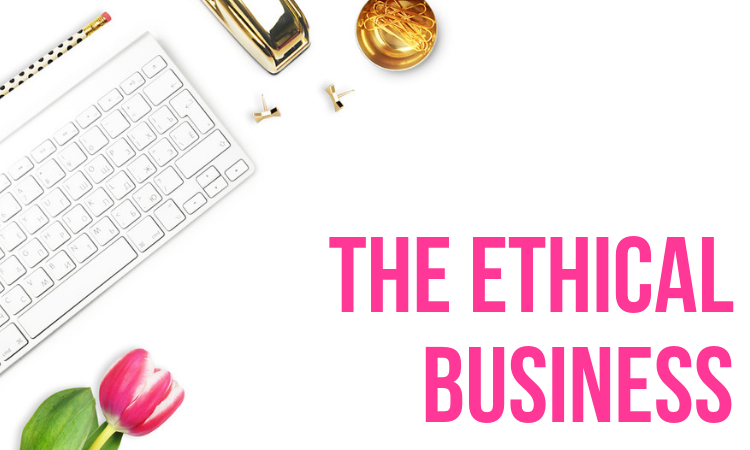It’s a new age for entrepreneurship. Doing good in the world while maintaining a business no longer is an oddity. Companies are now being built on the very foundation of doing good in the world. Today, you have companies designing sneakers entirely from recycled materials, or food joints that go to lengths to make sure they source all their ingredients locally, or businesses that make a point of hiring people who traditionally struggled in the job market, such as vets, elderly and less-able bodied people. Consumers are responding in kind, and rewarding companies that pursue making the world a better place next to their bottom line. These companies are usually referred to as ethical businesses.
This is a contributed post. Please refer to my disclosure for more information

Mission & Values
But what makes an ethical business? There are a few elements that keep coming back that overlap for these type of businesses. First of all it’s usually right there in their core value statement. An ethical business makes choices deliberately and will proudly wear that badge in its mission and value statement. Usually, that siphons through to the code of conduct for employees as well. It’s not uncommon the mission and vision of a company will be pushed forward in marketing and PR publications.
Integrity & Fairness
Whatever cause or ethical focus a company has, there will be a common thread of integrity and fairness to the core of it all. The integrity will apply to adhere to the laws that are in place, while making sure it treats its employees and suppliers fairly. Fair pricing, timely payments (especially to its suppliers) and demanding quality in all aspects of the business is part of the ethos. An ethical company might make mistakes along the way, but will be the first one to own up on a mishap and will do everything to correct their errors.
Concern For People & Environment
There is also a real concern for people and the environment. In most cases, there will be a zero-tolerance policy for abuse in any shape or form of staff, but also the inclusion of staff when it comes to decision making that might concern the course of the company. All aspects of the business are looked at to see if less waste can be produced (less packaging or example), or more environmentally friendly alternatives can be found (recycled products) or the impact on the environment can be reduced (using fibreglass separators to clean wastewater).
All About The Dialogue
There is also a focus on people and interaction. This could be with employees or customers or both. An ethical company will want to maintain a dialogue and stay open-minded for different perspectives, even when this clashes with their own belief system. The connection with people is seen as a grounding factor that puts context to whatever a business does. The company does not exist because of itself, it exists because it plays a role in people’s lives.
Lasting Relationships
An ethical company also emphasizes the desire to create lasting relationships. This could be with employees, suppliers, and customers. Shying away from a purely transactional relationship, an ethical business is looking to develop a network in which people can depend on each other and will help each other in times of need. You can see this in companies offering life-long learning or increased medical coverage, or partnering with suppliers and actively promoting them, or going above and beyond for their customers.
What To Read Next
Boosting Your Blog Traffic in 3 Easy Steps
This Simple Strategy Will Help You Craft The Perfect Blog Post



